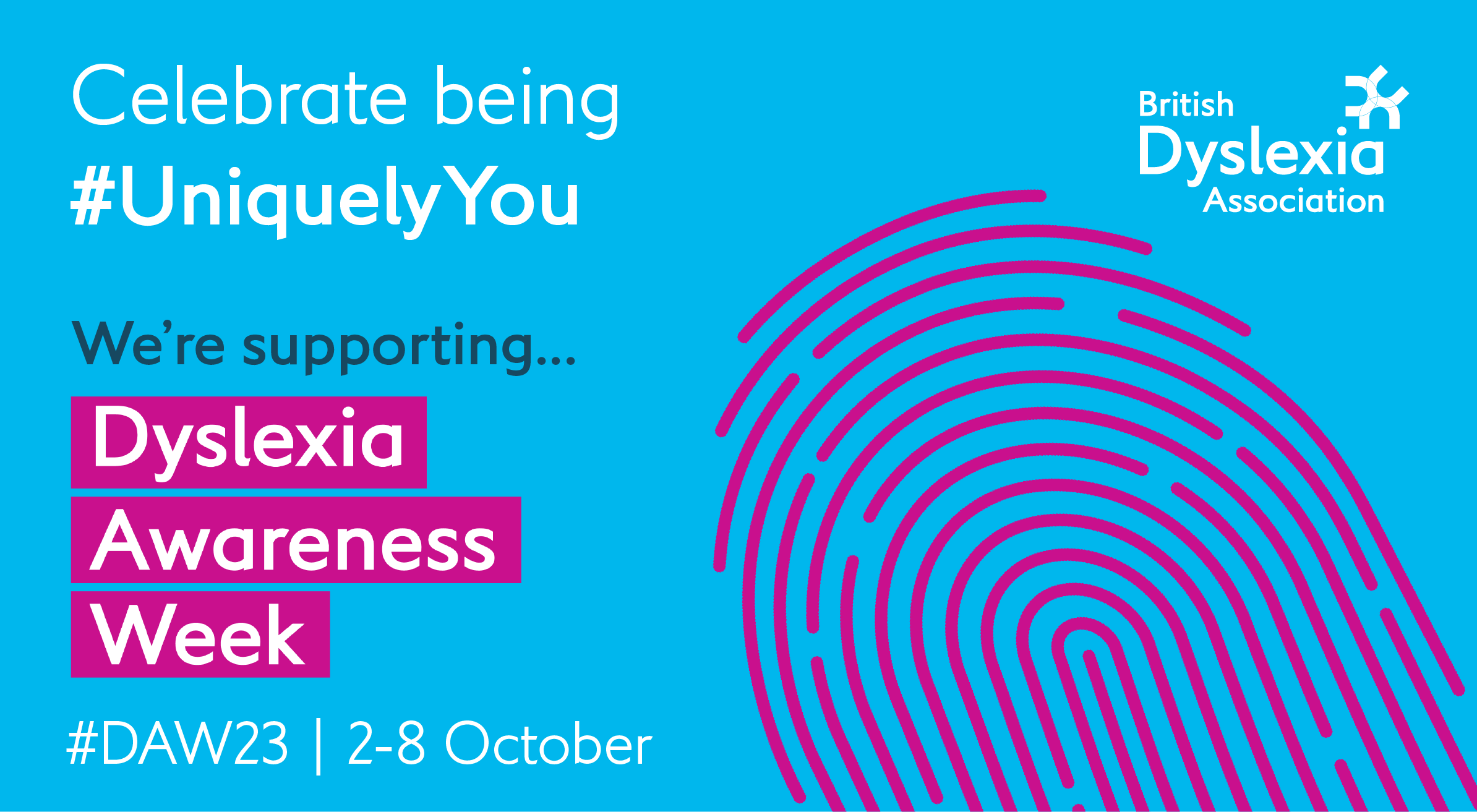Dyslexia Awareness Week 2023
We will be celebrating Dyslexia Awareness Week, which runs from Monday 2nd to Sunday 8th October 2023. This year the focus is, ‘Uniquely You’.

UK Dyslexia Awareness Week coincides with October being International Dyslexia Awareness month.
Dyslexia is a specific learning difference that affects reading and spelling ability and can cause children and adults to struggle with literacy skills. It has nothing to do with intelligence, but rather a different way of dealing with language in the brain.
‘Dyslexic thinking’ has recently been added to the dictionary, with the following definition: ‘an approach to problem solving, assessing information, and learning, often used by people with dyslexia, that involves pattern recognition, spatial reasoning, lateral thinking, and interpersonal communication’.
Although dyslexia mainly impacts reading, writing and spelling skills this could look like: tiredness and anxiety from working at high pace, in an environment that highlights challenges; difficulties being highlighted when asked to write or read aloud; struggling to access long and complicated lectures with a lack of visually presented information; confusion and anxiety around competing or unclear priorities information overload, especially around written communications such as emails in Higher Education.
More information about dyslexia can be found on The British Dyslexia Association (BDA) website. The BDA promote a dyslexia friendly society that enables dyslexic people of all ages to reach their full potential.
You can find out more information about support offered on our Disability support page.
 Artist keeps links with Teesside to design Animex logo
Artist keeps links with Teesside to design Animex logo Developing international research collaborations
Developing international research collaborations Partnership addresses period poverty
Partnership addresses period poverty